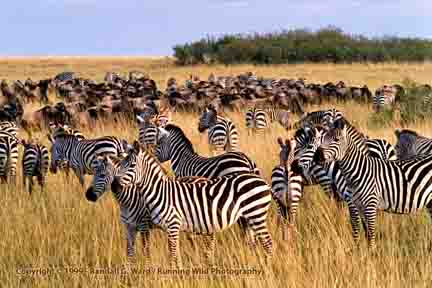Oh, but Zebras do get a huge advantage from browsing amongst the Wildebeests -- protection from predators.
And since they not only don't compete for the same food, and actually help grow food preferred by wildebeests, that can easily be called "symbiotic".
SampleMan: "The zebra eats what it eats because it desires to eat it, not 'to allow for new growth that is suitable for Wildebeest.' "
But that is the case with virtually every symbiotic relationship in nature.
One species does what it does for its own reasons, but it turns out to directly help another species, so we call it symbiotic.
For a discussion and list of various types of symbiosis, see this link.
SampleMan: "It should read 'Zebra do X, and that is beneficial to the wildebeest.'
Straight facts, no assertion of intent or design."
Again, you're splitting hairs on definitions of words.
Of course it's impossible to say that nature "intends" this, or "plans" that, or does something else for a conscious "reason".
Nature itself is not conscious, and neither are most creatures, so their own "purpose" is not something we can attribute to them.
But we certainly can observe results, and notice how one process contributes to something else, and call that symbiosis.
And of course, I attribute all of it to God's plan, His purposes & reasons, regardless of any conscious intentions, or lack of, in nature.
